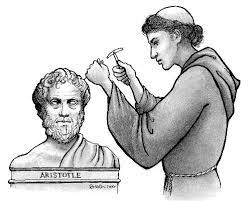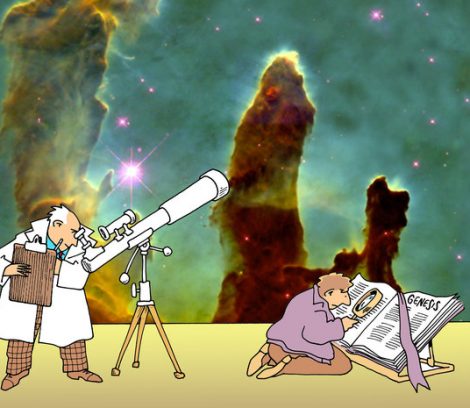
What Religion Gives Us (That Science Can’t)
Due to time restraints caused by my moving out-of-state, Skeptical Faith blogs are, as they say in show biz, “encore presentations.” This one was published in 2018.
The New York Times recently published an opinion piece by philosopher Stephen Asma with the above title. It was among the newspaper’s most trending stories and elicited thousands of comments.
It’s a tough time to defend religion,” Asma acknowledges at the outset. “Respect for it has diminished in almost every corner of modern life — not just among atheists and intellectuals, but among the wider public, too.”
Polls for the last decade confirm Asma’s remarks, and, of course, I have no argument with his main premise, that religion gives people what science, and no other practice or system, can. And, that as a society, we need it. I disagree, however, with Asma’s notion that religion is “irrational” and useful only for its emotional rewards.
Encounter with a Student
Asma, who teaches at Columbia College in Chicago, writes about his encounter with one of his students, whose older teenage brother had been stabbed to death. His mother had a “mental breakdown” and “would have been institutionalized if not for the fact that she expected to see her slain son again, to be reunited with him in the afterlife.
“These bolstering beliefs, along with the church rituals she engaged in after her son’s murder,” he writes, “dragged her back from the brink of debilitating sorrow, and gave her the strength to continue raising her other two children — my student and his sister.”
I believe humans are primarily motivated by our emotions, though we like to think we are motivated by reason. Religion offers plenty of emotional rewards, but though it doesn’t offer the scientific evidence many are looking for, it offers plenty of evidence, at least in the case of the Judeo-Christian tradition.
Compare to Jury Trials
Let’s compare religious belief to the evidence presented in jury trials. According to the 2019 annual report by the National Registry of Exonerations, the percentage of wrongful convictions is somewhere between 2% and 10%. Not a bad degree of certainty, I would say. Most of these convictions have been determined by a jury and much of the evidence presented by witnesses.
In the case of Christianity, millions of witnesses over centuries have testified to having had religious experiences and have affirmed, often with their lives, the value of their faith. That is valuable evidence, in my view.
Then, there’s the Bible. Much of it may use mythical stories to convey religious teaching, but much is historical, according to archeologists. Something unique and life-changing happened to the ancient Hebrews, who described in the Hebrew Bible God’s intervention in human history. That continued in the Christian Bible, much of which is also based on historical events.
“First Cause”
Over the centuries, philosophers have also rationalized about God’s existence. Their evidence, such as Thomas Aquinas’ “first cause,” “first mover” and “necessary being,” is mostly ignored by today’s scholars. But as with scientific arguments, it relies on deduction and induction in arriving at valid conclusions.
In my view, faith is simply another way of knowing. It requires an acceptance of uncertainty, just as science does. But I whole-heartedly agree with Asma’s conclusion.
“…Most religion is actually helpful to the average family struggling to eke out a living in trying times,” he writes. And, “… religious practice (rituals, devotional activities, songs, prayer and story) manages our emotions, giving us opportunities to express care for each other in grief, providing us with the alleviation of stress and anxiety, or giving us direction and an outlet for rage.”



